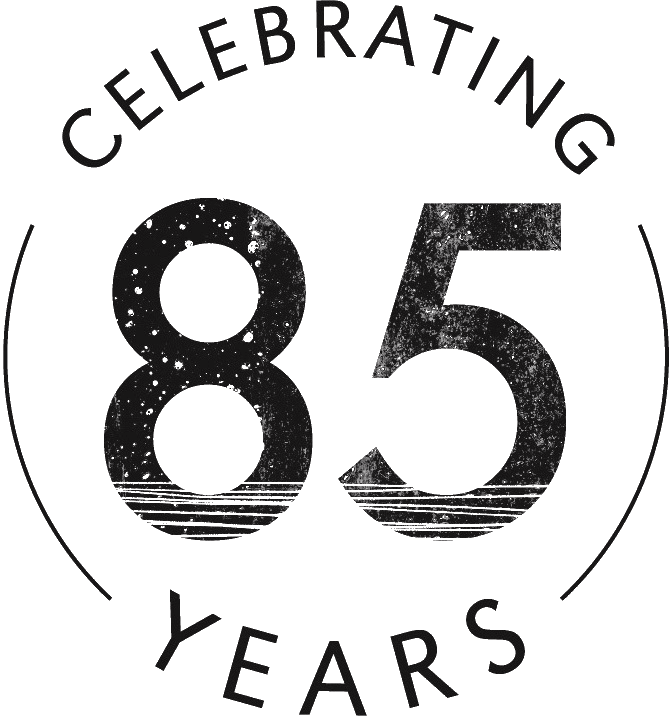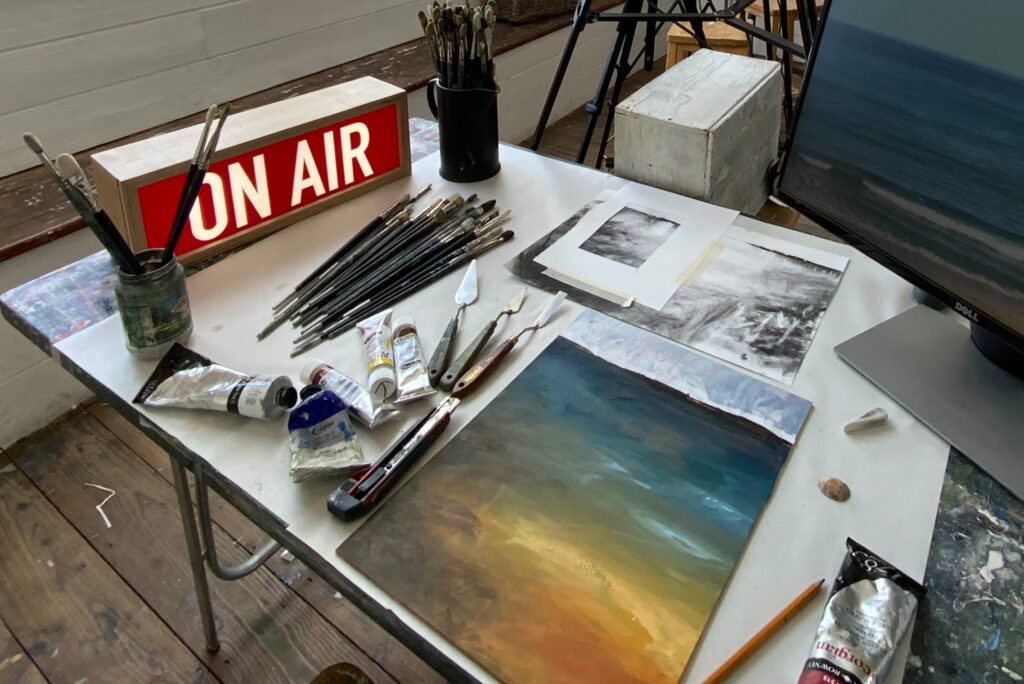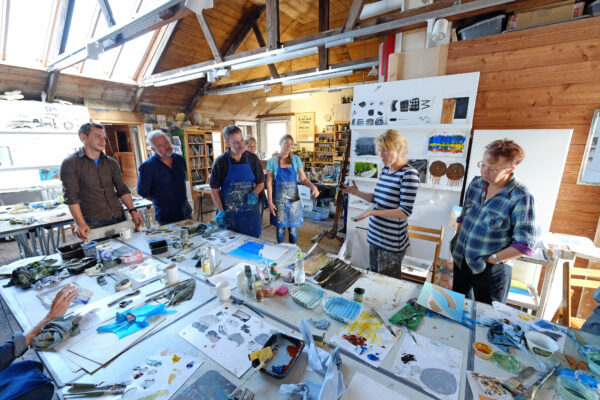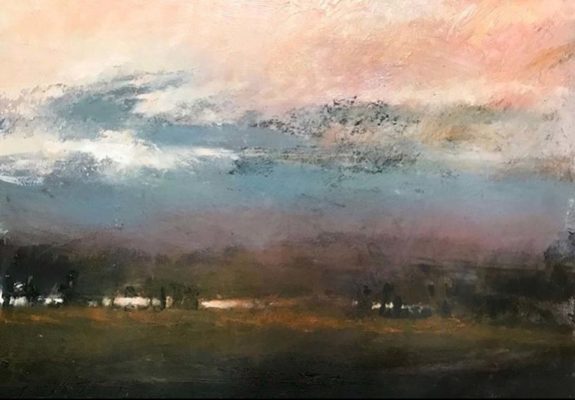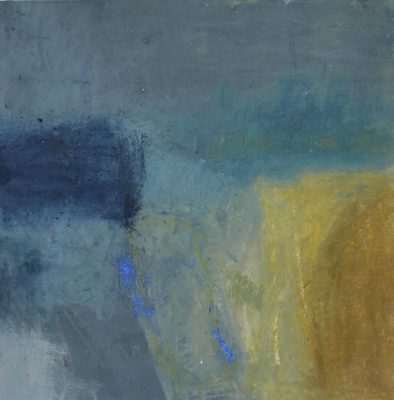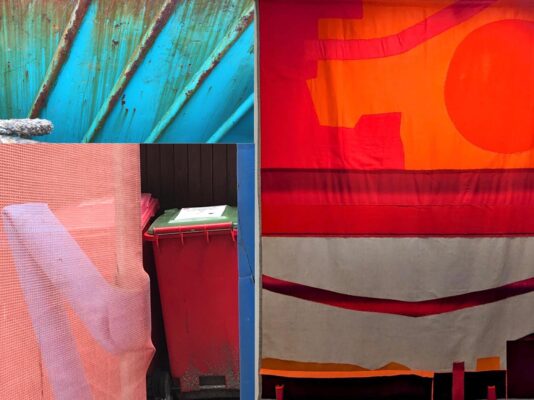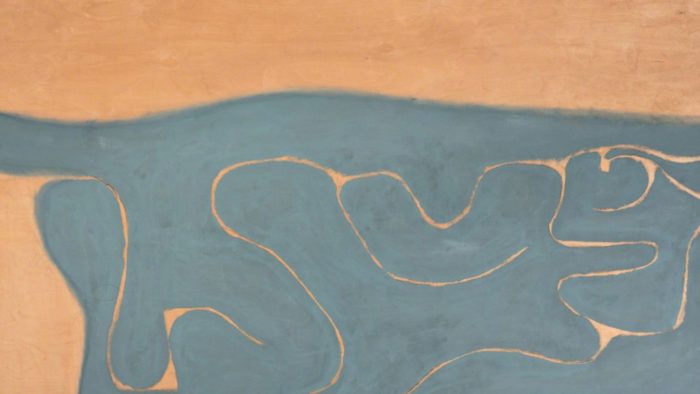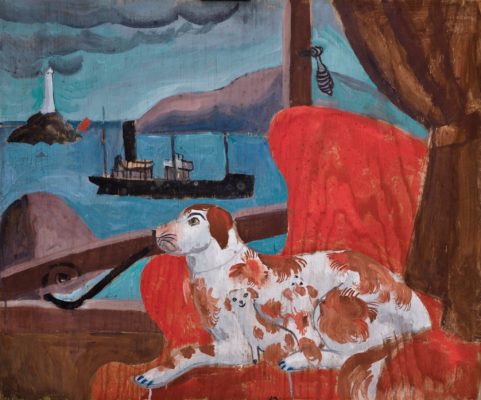This website uses cookies so that we can provide you with the best user experience possible. Cookie information is stored in your browser and performs functions such as recognising you when you return to our website and helping our team to understand which sections of the website you find most interesting and useful.
Course details
A ten month online intensive course, with 1-1 tutorials and small group creative sessions to develop you as an artist.
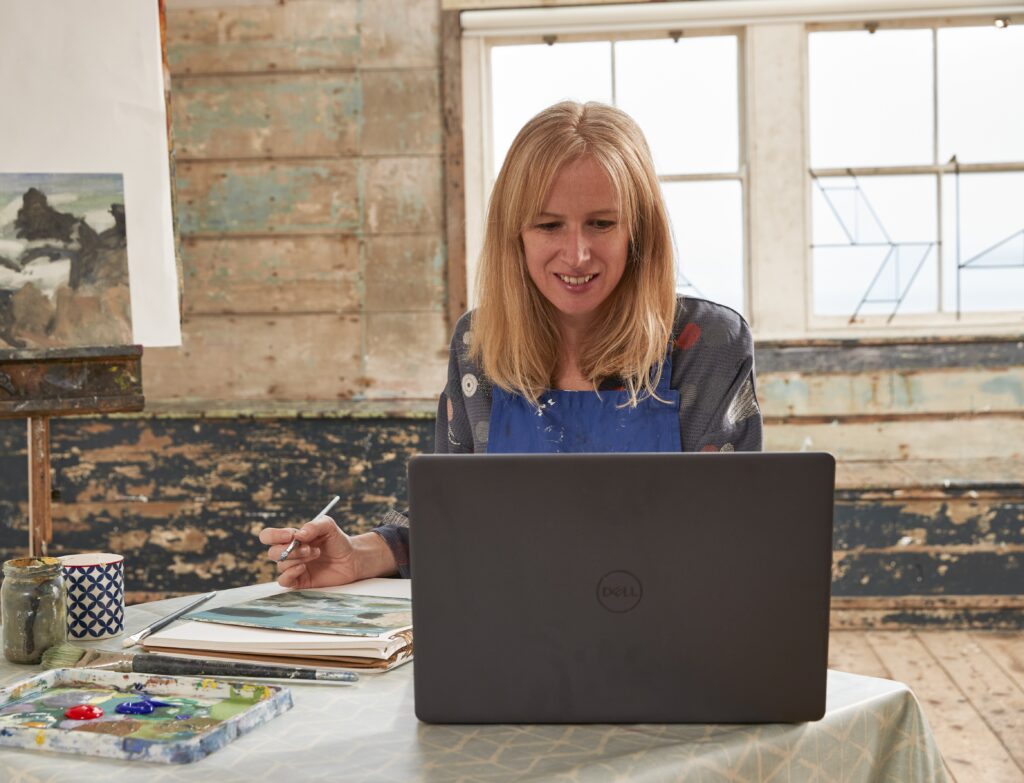
The Porthmeor Programme Online is a unique opportunity to find and develop your individual creative voice over the course of 10 months. Making is at the heart of it. We combine professional guidance and support from 1-1 tutorials with our lead artists, with practical making workshops led by guest artists.
The process will take you on a journey over the 10 months with the primary purpose of expanding your personal practice. Running through the programme is the development of your critical voice through personal projects, one to ones and group crits.
You will learn to develop key ‘creative muscles’: risk taking and experimentation alongside the art of translation and interpretation.
Our small group size means a generous amount of tutor time alongside a close, supportive peer group.
Many students go on to exhibit together and establish valuable long term networks. This online version has evolved from our face to face model and without the need to travel to St Ives every month, widens the opportunity. We have run the face to face version now for 10 years, guiding over 150 students through our unique programme so far. We have used this experience to develop this online version so you can benefit from this powerful and motivating programme from your own home.
What skills will I learn?
The sessions are varied, and most people will come across a new technique or nugget of information they will find valuable. However, the primary focus is not on developing your painting skills in these sessions. It is about discovery, taking risks and gaining insights.
We design the sessions to limber up your creative practice, to energize and to build the critical voice you need as an artist. We are happy to advise you on our shorter courses online and face to face that offer a range of practical skills development.
To help you supplement the Programme with practical learning we offer a 15% discount on all our online sessions for the duration of the programme.
Who would this course suit?
This will suit both early stage artists and those with more experience who are looking to challenge and stimulate their practice. We believe that developing a strong practice is where you start.
The focus is not on the secrets of getting gallery representation or making a living as artist. It is about helping you become the confident artist you want to be and the rest will follow. This is the first most critical and exciting step and this is what we can help you with.
Porthmeor Programme Online 2025
Payment Option
Instalment plan possible, enquire at [email protected]
How to Apply
To be considered for a place on our online Porthmeor Programme, please fill in the application form by clicking the link below. We have limited places available for our online course.
How much contact time is there with tutors?
Every month there will be a weekend workshop, a follow on group seminar and you will have a personal 1 to 1 tutorial, (with the exception of April and August when we will breaking for the holidays).
We will have an online platform for your group to discuss and share work on, offering peer support and encouragement. Your tutor will also interact between sessions here providing ongoing feedback and support
What happens when the programme ends?
You will retain access to your group platform for a year, including all the recordings of your live sessions.
There is the opportunity to come on an artist retreat in St. Ives ranging from five days to a weekend, for those who would like to touch base again and refresh. These sessions incorporate practical workshops and individual tutorial sessions.
How is the programme structured?
Over 10 months, you will enjoy a mix of individual tutorials and guidance from our lead tutors Kate Southworth and Greg Humphries, accompanied by a structured and varied creative programme taught by both lead and guest artists.
Live classes run monthly, via Zoom on Saturday and Sunday mornings with you working independently in the afternoons, gaining feedback at the end of the day. The sessions are recorded so you can review the session at your leisure and catch up if you miss any.
Your lead tutor will follow up each class with a group discussion on the following Thursday morning, to maximise your learning.
In addition, you will receive a 1 -1 tutorial between every session. These will take place between 4pm and 6pm on a Monday, Tuesday or Thursday evening during the first half of the course with Kate Southworth as your lead tutor. For the last half of the course these will take place on a Saturday morning with Greg Humphries as your lead tutor.
Each lead tutor will give you a distinct perspective on your work. They will run the sessions together at the start and close, with Kate Southworth taking the first half of the programme, followed by Greg Humphries. This will be the 7th time they have run this programme together so you are in good hands.
Workshop Dates 2025
There is also a group seminar on the Thursday following the workshop and 1-1 tutorials once a month
10 January
Onboarding- ensuring you are happy with the tech – optional
17 January
Meet your Tutors – Friday 3-5pm Kate Southworth & Greg Humphries
18 – 19 January
Harnessing Chance in Painting – Kate Southworth
22 – 23 February
Motivation Through Materials – Kitty Hillier
29 – 30 March
Atelier Painting – Emily Roberts
3 – 4 May
Dreams & Drives – Ilker Cinarel
7 – 8 June
Exploring Your Voice Through Nature – Greg Humphries
12 – 13 July
New Dimensions – Camilla Dixon
13 – 14 September
Visual Thinking – Kieran Stiles
18 – 19 October
Next Steps for your Creative Practice – Kate Southworth & Greg Humphries
Timings and Breaks
The week before the course starts (10th January 12pm-12.30pm), there will be a technical session with our digital administrator to make sure you are comfortable with the online learning platform and everything is working correctly.
Live broadcast workshops will run on Saturdays and Sundays 10am – 1pm.
Your first weekend will start on Friday 17th January 3-5pm with an introductory session. A chance for you to meet your tutors and fellow students.
You will be expected to work independently in the afternoon and upload your work and comments to our online platform for feedback and discussion.
Follow up group seminar on Thursday following the workshop.
Your tutor will schedule monthly 1-1 tutorials at times to be agreed. For the first part of the course, these will be with Kate Southworth and will take place between 4pm-6pm on a Monday, Tuesday or Thursday evening. For the second part of the course, these tutorials will be with Greg Humphries and will take place on a Saturday morning. (On some occasions, the 1-1 tutorials may require to take place on a weekday morning.)
Taught by
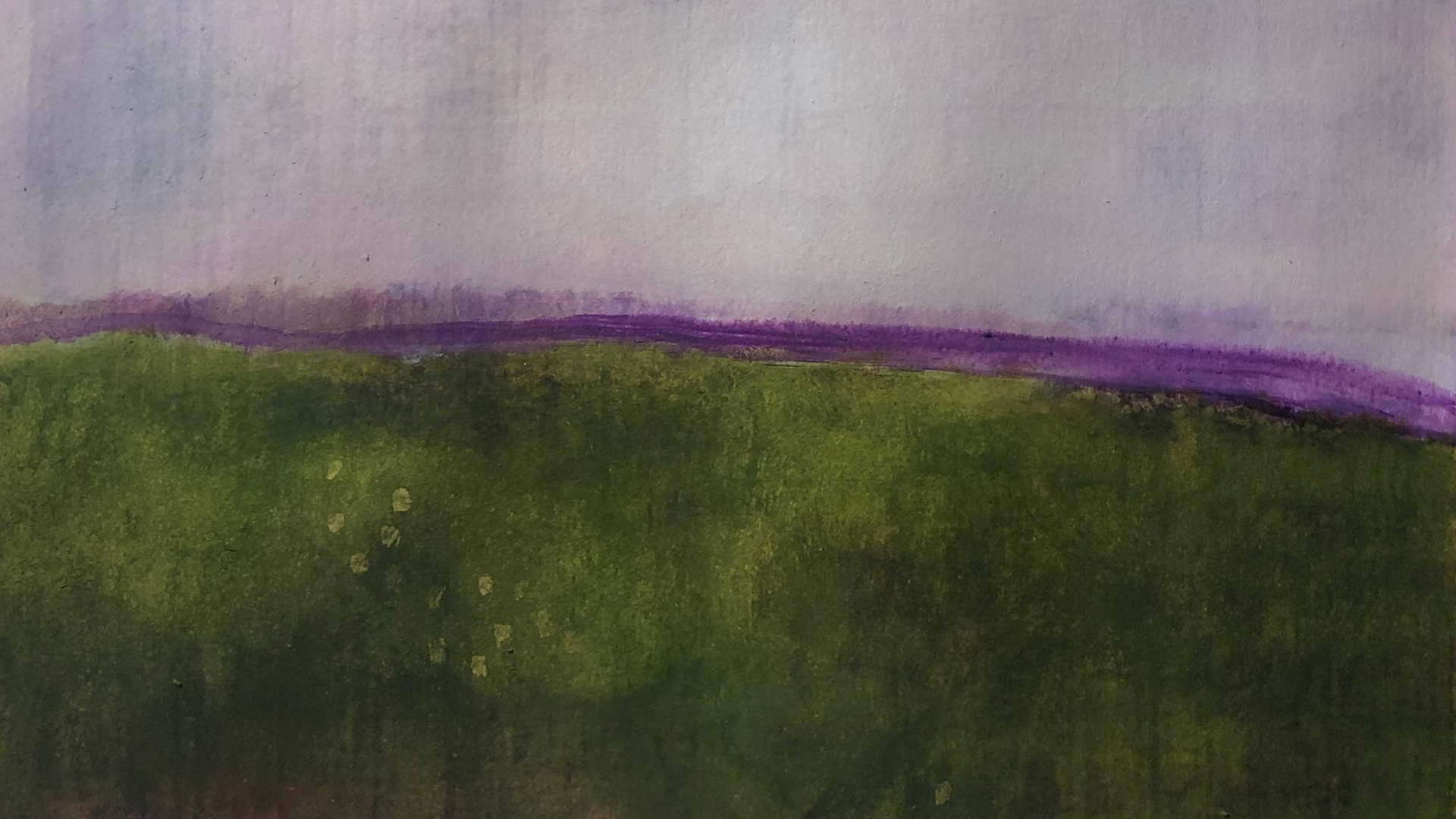
IN CONVERSATION
We caught up with Alison Cook, an alumnus of the Porthmeor Programme Online, as she talks through her practice, inspirations and how the Porthmeor Programme changed the way she approached her work.
How would you describe your art practice?
My practice responds to themes around our interconnectedness to the natural world and how these connections offer parallels with the everyday intricacies of the human experience. My background is in Textiles and Fashion Retail and this background feeds into my Painting Practice. Since completing an MA at the RCA my work has moved into the expanded field of painting. I construct 3D assemblages and stages using packaging and recycled materials and these are an integral part of my painting practice.
What does your daily routine look like?
Once the Kids are off to school I try and get out for a run or a walk. I use this time to look, think and reflect. I collect natures detritus and bring elements back to the studio to look at closely and in a different context. I work in short fragments of time and my working day ends mid-afternoon. Any admin I need to do around my practice is done in the evenings. My studio is at home, and I live rurally so I try and get to London regularly to see shows and do gallery visits.
What do you enjoy doing outside of your art? How does that feed into your practice?
Walking and running have become an integral part of my initial research. The cycles of the seasons set the pace, yet we often resist these natural patterns in our own lives and relationships. I record these intricate shifts whilst walking or running. I have been researching walking as a philosophical practice and getting outdoors every day clears my head and sets me up for the day. I do the same when I travel and am interested in researching place through the wild plants that grow along the sides of roads or on verges.
Who inspires you as an artist?
As my work has moved into 3D, I have been looking at Sculptors such as Phylidda Barlow, Maria Bartuszova, Eva Hesse, Magdalena Abakanowitz and the Italian sculptor Fausto Melotti. The Italian ‘Arte Povera’ movement has also been resonating with my practice. I have moved away from the stretched canvas just now and have been painting on cardboard, sculptors tissue and also slate.
Have you always been interested in art, or was it something you came to later in life?
I have been interested in art since I was really young and at the age of 13, I decided I was going to be an artist! My degree was in Textile Design in the 90’s and I went on to work in the fashion industry designing store concepts for fashion brands. The work was very theatrical and always evolving. I was very fortunate to work collaboratively with artists, set builders, lighting designers and carpenters so the creative process was at the core of my work. My art practice developed in earnest after I became a Mother. It felt like the right time. I started drawing on small postcards when the boys were very young. As the boys grew, so did the work.
I really needed a fresh approach and to break out of habits and blocks. The nature of the programme gave me the opportunity to really think about what I wanted to do and how to experiment in new ways.
What did you do before the Porthmeor Programme?
Before the Porthmeor Programme I was in the early stages of a painting practice. I was exhibiting and selling locally in my area and had started to take on commissions. I had also done workshops with a local school getting teenagers drawing and painting outside and looking at wild plants at the edge of the playing fields.
What drew you to the programme?
I knew the programme ran a studio course but as I live too far away from St Ives this option was impossible. The online version was something I could slot into life as the sessions were over a series of weekends. As we had all become more adept at working remotely during COVID I was curious to see how it would work.
What would you say has changed for you since the programme?
The programme was really instrumental in many changes to my practice. I really needed a fresh approach and to break out of habits and blocks. The nature of the programme gave me the opportunity to really think about what I wanted to do and how to experiment in new ways.
What is your favourite memory of the programme?
The Community! We clicked; it was a magic 6 months. Despite it all being online the group really came together in this shared experience. The Tutors were really helpful and encouraging. The emphasis was on process rather than outcome.
What made you choose the online option? How did you find interacting with tutors and fellow students solely online?
The online version of the programme enabled a degree of intimacy to the group despite not being in person. We were all in our home studios, so this was easier in some respects. As I mentioned earlier, I don’t live in Cornwall, so the online course was the only choice. After the initial reservations the conversation flowed well, and this was guided by our Tutors who introduced the concepts and activities really clearly. All the students came from such diverse disciplines and backgrounds that we were able to support each other and share our work via a Padlet pin board. We had 1-2-1 tutorials regularly and these were an opportunity to discuss our practice and exchange ideas. There was a lot of inspiring chat!
What advice would you give someone wondering whether to apply for the programme?
My advice would be to go for it! Throw yourself into it. The course was a good discipline especially if your practice is something you squeeze in between other life commitments. I was thinking of applying for a Masters Degree but felt my practice really needed a shake up and I hadn’t had a tutorial for 30 years! The Porthmeor Programme encouraged me to think conceptually and contextually whilst experimenting with new materials and processes.
What artistic achievement are you most proud of?
I feel proud to say that I have just graduated from The Royal College of Art on the 2023/24 MA Painting Programme.
Are you a full-time artist these days?
Yes, I am a full-time artist. Following my MA I am working from home where I have a great studio with lots of natural light. I am looking to get a studio in London very soon as one of the best parts of being at Art School again was the community of artists in a shared space. The connection with other artists is vital.
What does the future hold for your art?
My art career is in its earliest stages and it’s an exciting place to be. I really don’t know where it will lead is the best answer I have for this right now! I am looking at rural locations to hold a show of my work away from the standard white box setting of a Gallery. I will continue to work with community engaged projects alongside my practice as both feed into each other. Art really does connect people and that’s what it’s all about, Connection.
– Alison Cook
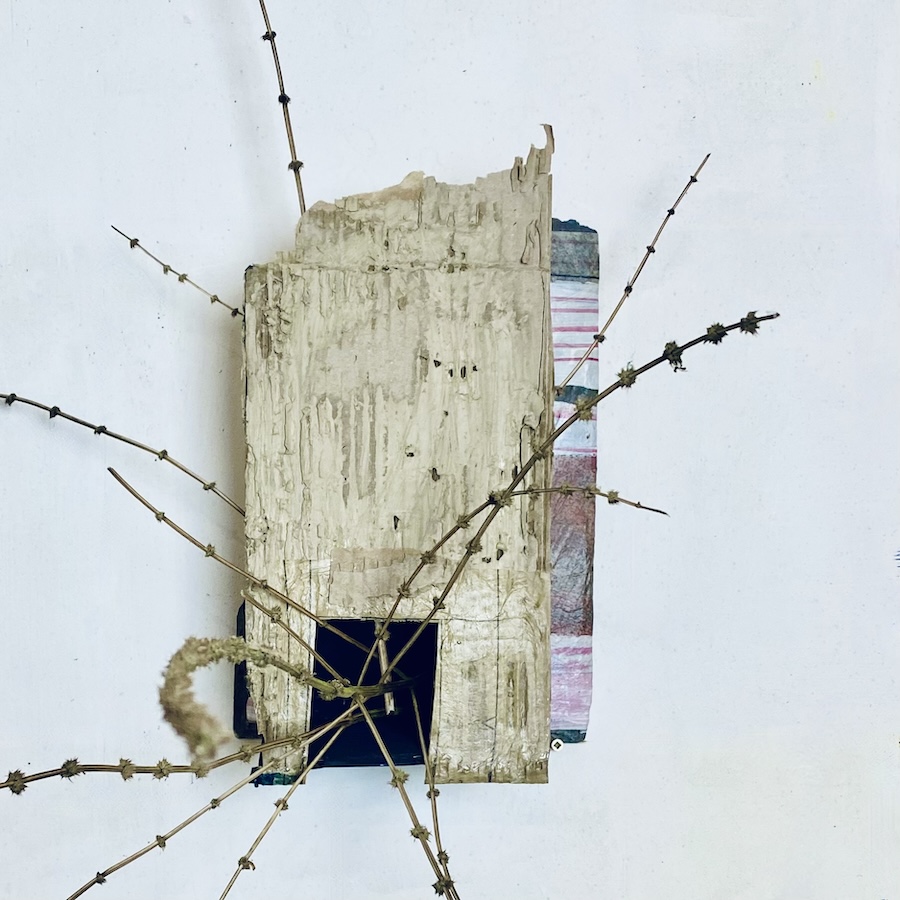
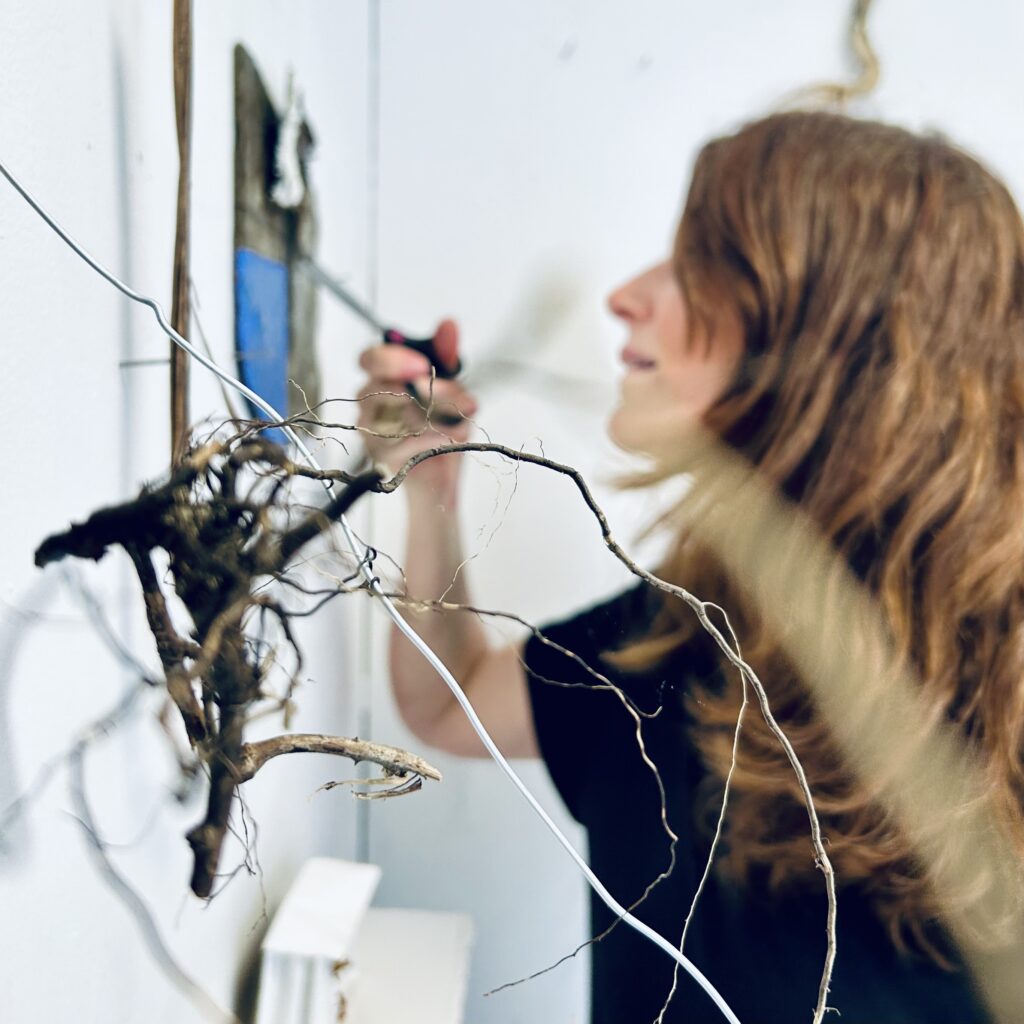
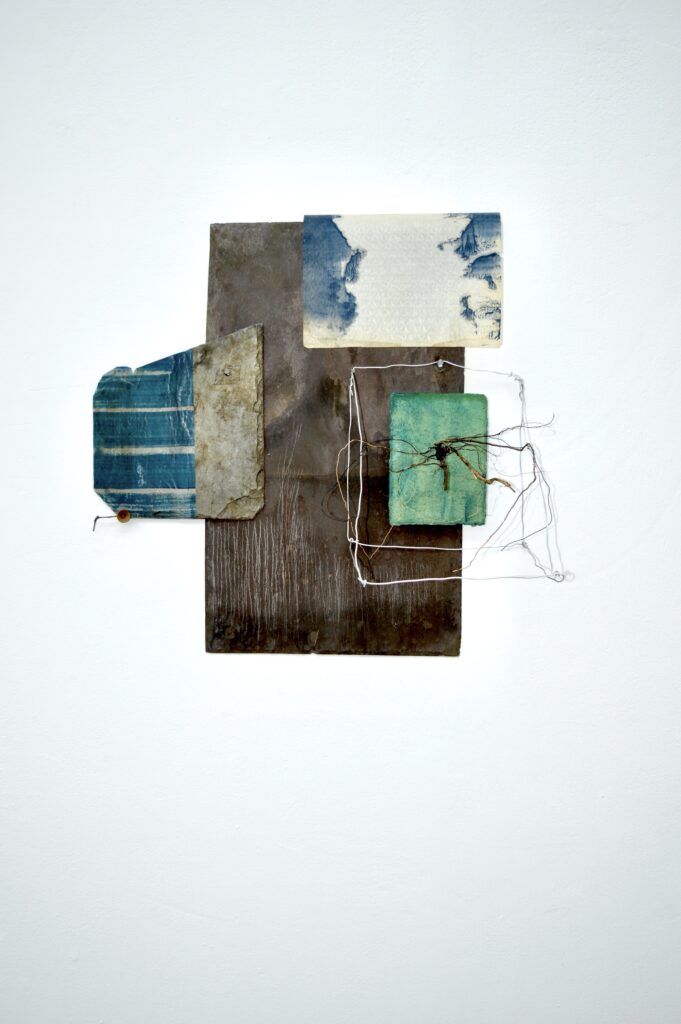
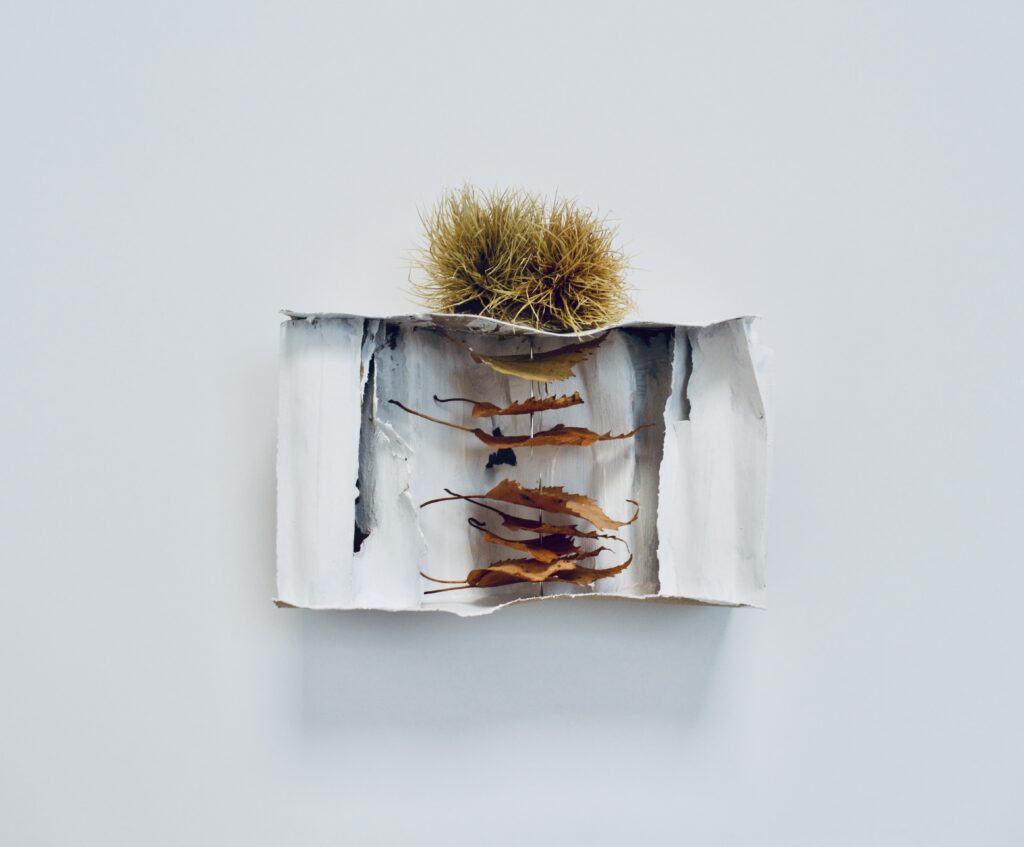
What our students say
It revived me.
FAQs
Online Broadcast
How can I get help in choosing a course?
Our friendly expert staff are always happy to discuss your needs and our courses in more detail to help you with your decision. Please call us on 01736 797180
Do I need a webcam/any equipment?
For our webinar sessions which are broadcast on the internet and no webcam or microphone is needed as you just need to be able to see/hear hosts and you can communicate using the chat function. You can watch using a PC, Smart TV or tablet. A phone isn’t ideal as you will struggle to see enough unless you can miracast to a screen or smart TV.
For the longer online courses on Zoom you will need a laptop or tablet with audio and camera enabled so you can have a screen near where you are working. If you have a PC without camera or speakers, you can purchase a plug and play webcam for approx £25 which connects to a usb port. You will also need reasonable broadband connection and speed.
All the art materials and equipment needed to participate in the course will be listed in full on the online learning platform, for live webinars this will be a minimum of two weeks before the session starts.
I have registered for the webinar but I can't find my joining link
You can access all the resources and joining link for your webinar via our online learning platform. You will need to have set up an account on our online learning platform in advance. You can do this during the checkout process when purchasing your webinar. If you are having trouble accessing your online account, please contact [email protected]. You can use a PC or tablet or even cast from your phone to watch on your Smart TV.
I paid for the session but missed it, how can I watch?
Currently all our online sessions are recorded and you can access the recording on our online learning platform until it expires. Usually 60 days for a webinar, 90 – 180 days for multipart webinars or online courses.
Studio Courses
How can I get help in choosing a course?
Our friendly expert staff are always happy to discuss your needs and our courses in more detail to help you with your decision. Please call us on 01736 797180
How do I get my work home?
Tutors have special techniques for transporting oil paintings and the school has plastic folders available in our shop for £3.50 or do bring a portfolio.
For international students we are happy to arrange transportation of your work back home.
What do I need to bring?
Absolutely nothing! All materials and aprons are provided although some people do like to bring their own set of brushes.
What do I do for lunch?
Courses allow an hour’s break for lunch and there are numerous places nearby or you are welcome to bring a packed lunch into the studio.
What times do courses run?
Most of our courses start at 10am and end at 4.30pm on the first day. Subsequent days we start at 9.30am ending at 4pm.
Weekend Courses run 10am – 4pm on the first day but the final day starts at 9.30 and ends at 3.30 with a short lunch break to enable people to get home that evening.
Do you have to be experienced to come to the School?
The School is a very friendly and welcoming place for all ages and experience. Our drop-in life classes and August half-day workshops are ideal for those wanting to have a go for the first time. Most of our longer courses are also fine for novices.
If any of the courses do need a bit of experience we flag this up in the brochure and on the website.
Booking a Course
How can I reserve a place?
We will hold a provisional reservation for 24 hours if you give us a call whilst you find accommodation. Otherwise please book online or by telephone 01736 797180.
You can reserve a place with a £100 deposit; balance is due 12 weeks before course start date.
About St Ives
Where do I park?
The nearest long stay public car parks are the Island and Barnoon Long Stay Car Park, both a 5 minute walk away. In the peak summer months it may be easier to park at Trenwith Car Park by the leisure centre and walk down into town. If you don’t fancy the walk up the hill at the end of the day there is a shuttle bus which runs from outside the cinema.
How do I get there?
Public Transport: If you are coming from further afield the main train line runs into St Erth which is a 15 min taxi ride away or you can take the St Ives Bay Line which runs approx. every 30 minutes. The School is a 10 minute walk from St Ives station.
Driving: M5 will take you to Exeter where we recommend that you take the A30 across Bodmin Moor and into Cornwall. After passing Hayle, leave the A30 at St Erth roundabout for St Ives. Turn right at the second roundabout. This road will take you through Lelant and Carbis Bay into St Ives.
Where can I stay?
St Ives has a huge selection of hotels, guest houses and self catering accommodation to choose from. Please browse the art holidays St Ives section on our website and give us a call if you would like any help.
